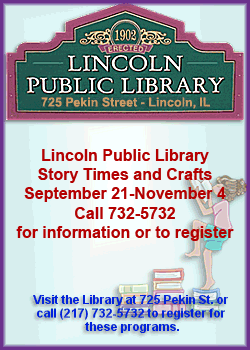 Review by Review by
Richard Sumrall"Can anything be made of last year's Yellow
Pages? Are wine bottles more enchanting after the wine is long gone?" In her
new book, "Eco-Craft," graphic designer and eco-enthusiast Susan Wasinger
proves that a "going green" approach to trash recycling is not only good for
the environment, it's an enjoyable and thrifty way to create something new
for your home.
As Wasinger points out, there is an art and a craft to green living. It
is grounded in the belief that "our garbage can become the raw materials for
a new generation of useful, desirable objects." It's for people "eager to be
making things, doing and undoing, reinventing, embellishing, and
transforming."

This view toward recycling and reuse is based on some basic tenets:
Assume everything is reusable or recyclable; one person's rubbish is
another's raw materials; plastic is flexible, glass is enduring, metal
really shines, and paper takes many forms.
Decorate
The six decorating projects include a plush rug made from old wool
sweaters, vases created from painted wine bottles, and small bowls
constructed from discarded Yellow Pages. One of the most enterprising
decorating projects is the CD-Case Towel Rack. Simply take some old "jewel
box" plastic CD cases and insert your favorite family photographs. Affix the
cases to a treated 1-by-8-inch board and drill holes below the cases to
insert towel hooks under each photo. Finish the project with mounting screws
installed at each end of the board.
Create
Ten special projects help you create your own versions of everyday items.
You can make trays from hollow lengths of bamboo, storage canisters from
fiberboard containers and decorative paper, a colorful tote bag constructed
from metallic-looking coffee bags, or embellish wire hangers with tree
branches. A timely project for central Illinois is Stop the Draft. Cold air
can sneak in under the door during wintertime. You can solve that problem by
making a draft blocker from scraps of wool felt, thread and filler. The
longer strips are sown together lengthwise and hold the filling (sand, rice,
etc.), while the smaller felt pieces are used for decoration. Extra felt
strips can be fashioned into handles to hang the draft blocker directly on
the doorknob.
[to top of second column]
 |

Illuminate
These four projects are surprising for their beauty and
ingenuity. The simpler projects include hanging pendent lights made
from translucent milk jugs; pots of light put together in a small
bowl with glass gems layered over LED puck lights; and lampshades
from plastic grocery bags and bamboo skewers. One of Wasinger's most
elegant and ambitious projects is the Baby-Jar Chandelier. Gather
some tie wire, baby food jars, barrel hoops, nuts and bolts, and
some lightweight chain. Follow her illustrated step-by-step
instructions to wrap the wire around the jars and create the looped
spiral designs. Continue your decorative wire connections to bring
the jars around the barrel hoops and connect the hoops with the
lightweight chain. Complete the project with a votive or tealight
candle in each jar, and you have a charming piece of ironwork with a
medieval flavor.

Celebrate
You can celebrate the changing of the seasons in an eco-friendly
way with these eight projects. There are instructions for birdhouses
constructed from salvaged wood and old license plates, music boxes
made from sheet music and filled with sweet treats, holiday metal
ornaments punched from aluminum soda cans, and colorful homemade
wrapping paper. By the Book is a fun project that turns old
hardcover books into festive holiday decorations. To create an angel
or a tree, simply fold the pages from the top outside cover down
until the top edge of the page is tangent to the spine of the book.
Crease the pages with your fingers and set the book upright. The
spread of the pages creates a lovely design that can be enhanced
with wings (pages folded in the opposite direction), the angel's
head (with an eye hook, brass washer and wooden knob), or a vintage
metal star (to top the tree).
"Eco-Craft" is a timely and informative book that offers many
money-saving ideas while giving new life to old, discarded items.
The instructions are easy to follow and are illustrated by numerous
photographs.
Architect William McDonough once wrote: "Design can eliminate the
concept of waste, producing perpetual assets rather than perpetual
liabilities." Wasinger's book exemplifies this philosophy and is
recommended to do-it-yourselfers, anyone concerned about the
environment and people trying to save money in these difficult
economic times.
[Text from file received
from Richard Sumrall,
Lincoln Public Library District] |